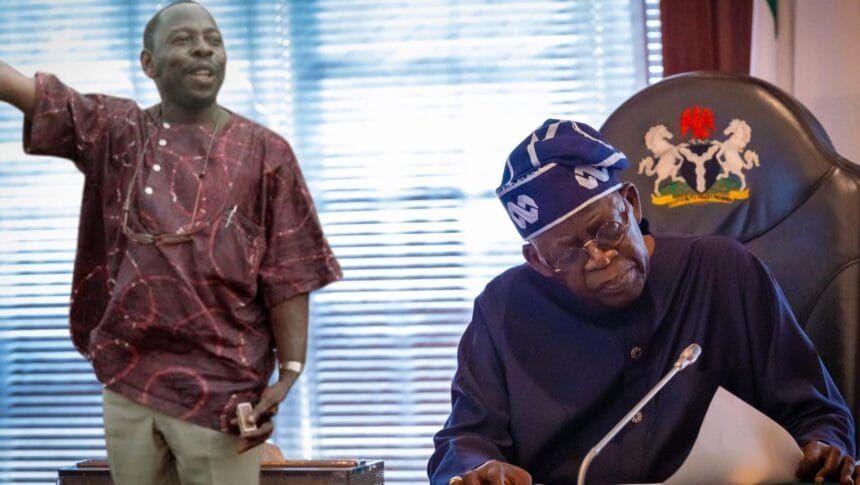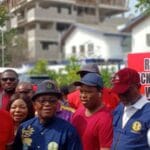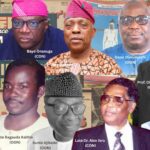… as FG moves to restart oil production in Ogoniland, 30 years after
Oredola Adeola
President Bola Tinubu has granted a full pardon and conferred posthumous national honours on Ken Saro-Wiwa (CON) and eight other Ogoni activists—Saturday Dobee, Nordu Eawo, Daniel Gbooko, Paul Levera, Felix Nuate, Baribor Bera, Barinem Kiobel, and John Kpuine (all OON).
Recall that the nine activists from the Ogoni region were convicted and executed on November 10, 1995, over the alleged murder of four Ogoni chiefs, a case that has remained controversial amid persistent claims of a flawed trial and political motivations.
President Bola Tinubu announced the pardons and posthumous honours during his address to the Joint Session of the National Assembly on Thursday, as part of the 2025 Democracy Day commemoration.
According to him, I shall also be exercising my powers under the prerogative of mercy to grant these national heroes a full pardon, together with others whose names shall be announced later in conjunction with the National Council of State.
Advisors Reports gathered that the announcement brings renewed attention to the long-standing struggle of the Ogoni people for justice, autonomy, and environmental protection.
In the early 1990s, the campaign led by the nine later-executed Ogoni activists, under the banner of MOSOP, highlighted the environmental degradation and economic neglect in their region, while also drawing criticism from some local and national actors who viewed their methods and demands as confrontation.
Tensions escalated in May 1994, when four Ogoni Conservative leaders (Albert Badey, Edward Kobani, Samuel Orage, and Theophilus Orage), seen as critics of MOSOP’s approach, were killed in an outbreak of violence that shook the community.
The military regime led by General Sani Abacha, at the time immediately arrested and prosecuted the movement’s leadership, resulting into a controversial trial widely condemned by Amnesty International and other human rights organizations for lacking due process and fairness.
Despite credible claims that key testimonies were coerced and that the accused had no direct involvement in the killings, all nine were sentenced to death and executed in November 1995.
Their deaths drew global outrage and intensified Nigeria’s isolation until the end of military rule.
In the decades since, the issues raised by the Ogoni campaign have persisted. Environmental damage remains a critical concern and calls for remediation and fair compensation have continued.
President Tinubu’s gesture marks a symbolic step toward national healing and recognition of historical wrongs, even as MOSOP’s continued advocacy keeps the legacy of the fallen activists alive and pushes for reconciliation in a community still grappling with the scars of its past.
In May 2025, the current administration announced plans to resume oil production in Ogoniland, three decades after operations were halted due to unrest and environmental concerns.
Nuhu Ribadu, National Security Adviser, speaking at an APC summit marking President Tinubu’s two years in office, noted that improved security in the Niger Delta has opened the door for renewed dialogue and efforts to resolve longstanding tensions in the region.




